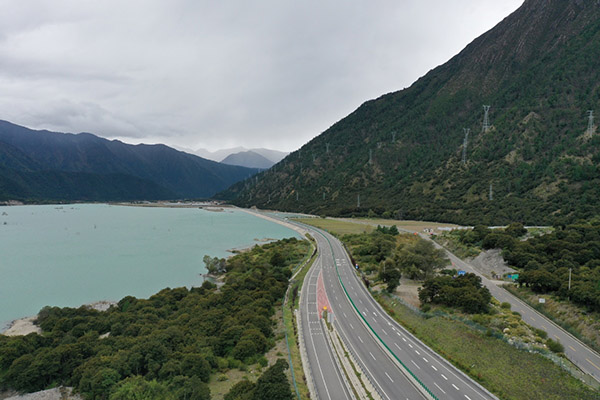Tibet's rural infrastructure blossoms
Updated: 2021-05-31 By Palden Nyima and Daqiong in Lhasa (chinadaily.com.cn)  Print
Print 



A view of the Lhasa-Nyingchi Highway. [Photo by Phenthok/For chinadaily.com.cn]
Southwest China's Tibet autonomous region invested more than 54 billion yuan ($8.6 billion) on rural infrastructure construction over the past five years, Xinhua News Agency reported.
The length of paved roads in the region's rural areas has reached 89,000 kilometers, with 654 townships and 4,094 villages now paved with proper roads. All its rural areas have access to safe drinking water.
The last tunnel was completed in late May for the second major highway linking Tibet's Metog county with the rest of the province. After the highway opens to traffic in September 2022, the distance from urban areas of Nyingchi, Tibet, to Metog county will be reduced to 180 km from 346 km, with travel time reduced to about four hours from the previous 12.
Tsering, a resident of Metog county, told Xinhua that the new highway opening in 2022 would boost his business selling tea leaves and stone pots.
"Without highway service, local products such as lemons sometimes get rotten in the fields, as they are hampered by slow transportation," Tsering said.
In 2020, the region's Ngari prefecture was linked with the state power grid, so that all counties and districts in the region have access to electricity.
Since the Communist Party of China's 18th National Congress in 2012, the region has invested more than 5.1 billion yuan on 18,100 rural water supply projects, making safe drinking water available to more than 99 percent of the region's rural population.








